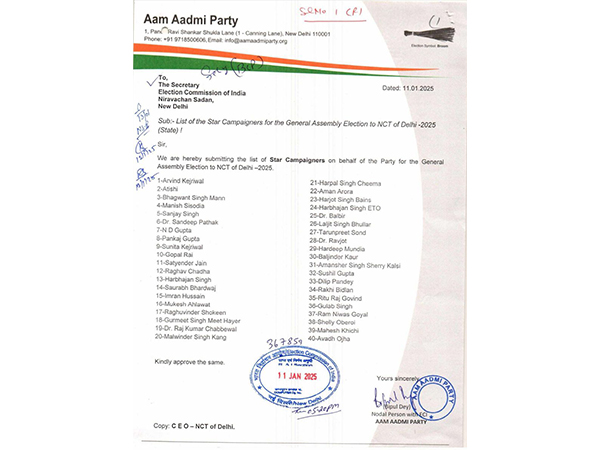
Mumbai (Maharashtra) [India], October 30 (ANI): Reserve Bank of India Governor Shaktikanta Das urged ombudsman to be sensitive and judicious in their approach while redressing the grievance of customers to deal with digital lending or fintech-related matters. The Governor was speaking at the annual conference of RBI Ombudsmen in Jodhpur, Rajasthan, on Friday evening.
The Governor said the RBI Ombudsmen and the regulated entities (REs) must first identify the root causes of persisting customer complaints and take necessary systemic measures to correct them. Second, the resolution of customer complaints by the REs and the RBI ombudsmen has to be fair and quick.
And, lastly, he said that even as the financial landscape evolves and transforms, the underlying principles for good customer service and customer protection namely, transparency, fair pricing, honest dealings. He also highlighted his concern of the fact that there are still persistent grievances in some specific areas like mis-selling, lack of transparency in pricing, disproportionate service charges, very high penal rates, etc. He also mentioned that social media stories of using strong-arm tactics by some recovery agents overshadow the good work that is being done for customer protection, both by the regulated entities (Banks, NBFCs, etc.) and the Reserve Bank.
Another concern of his was the fact that still a large number of complaints pertain to traditional banking. He said that this calls for serious review of the working of the customer service and grievance redress mechanism in the regulated entities. The root cause of persistence of such grievances need to be analysed and necessary corrective measures undertaken, the Governor added.
He also mentioned that the role of the board and the top management of the regulated entities is very crucial. He urged them to engage and ensure that there is customer-centricity in the design of products, the supporting processes, the delivery mechanism of the products and post-sales services. Commercial considerations are important, but they must necessarily be aligned with customer orientation in every aspect, including strategy and risk management.
He stressed that root cause analysis and its outcome should drive necessary changes at the organisational level including the process and system changes, policy and technological upgradation and skill enhancement of the relevant personnel. Complaints could provide a treasure trove of data on systems, processes and overall compliance, he said, adding that the findings can serve as invaluable inputs for the update of internal risk registers and mid-way correction. (ANI)


















